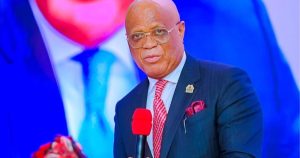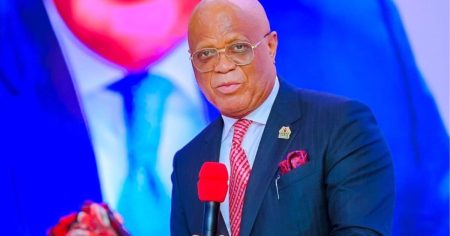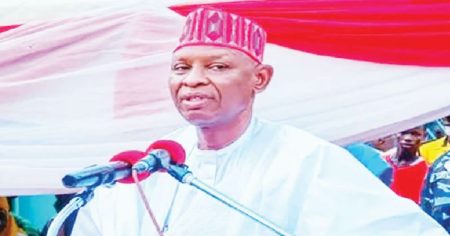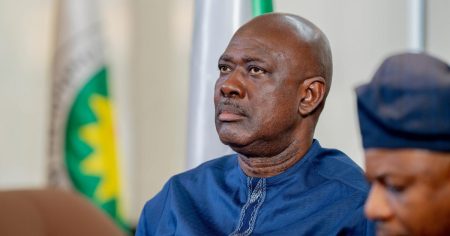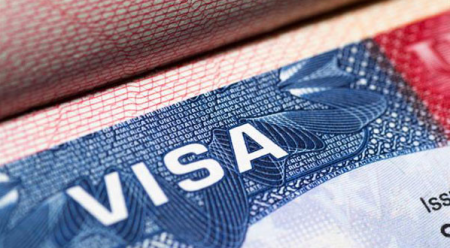Atiku Abubakar’s Political Trajectory and 2027 Presidential Aspirations
Former Vice President Atiku Abubakar’s recent resignation from the Peoples Democratic Party (PDP) marks the fourth time he has switched political allegiances since 1999, a pattern consistently linked to his presidential ambitions. His previous departures from the PDP occurred in 2006 when he joined the Action Congress, and again in 2014 when he aligned with the All Progressives Congress (APC), both instances preceding presidential elections. This latest move sees him joining the African Democratic Congress (ADC), a platform adopted by a coalition of opposition figures, including Atiku himself, Peter Obi, Rotimi Amaechi, and Nasir El-Rufai, with the explicit aim of challenging President Bola Tinubu in the 2027 elections. Atiku’s resignation letter cites the PDP’s current trajectory as deviating from its founding principles, prompting his departure. This recurrent theme of ideological divergence accompanying his party changes suggests a strategic calibration of his political positioning in pursuit of the presidency.
Reactions from the Political Landscape
The PDP, while acknowledging Atiku’s right to leave, downplayed the impact of his departure. Key figures like Governor Seyi Makinde described the PDP as an institution where individuals have the freedom to come and go, suggesting that Atiku’s exit would not significantly affect the party’s stability or prospects. Chief Bode George, a PDP Board of Trustees member, offered a more critical perspective, attributing Atiku’s decision to an “excessive ambition” and the constraints of the PDP’s zoning policy, which would likely preclude him from securing the party’s presidential ticket in 2027. George’s comments highlight the internal dynamics and power plays within the PDP, and the potential limitations they pose for Atiku’s presidential aspirations. Interestingly, the Adamawa State chapter of the PDP, Atiku’s home state, celebrated his exit, portraying it as a positive development and a boost for the party’s chances in the 2027 elections. This localized response reveals a complex interplay of regional politics and personal rivalries within the party.
The APC, on the other hand, responded with derision and accusations of opportunism. Felix Morka, the APC National Publicity Secretary, labeled Atiku a “political wanderer” driven by a “selfish and obsessive presidential ambition,” highlighting his perceived lack of commitment to party building and internal problem-solving. Bala Ibrahim, the APC Director of Publicity, echoed this sentiment, describing Atiku as a “serial loser” lacking political principles. These statements reflect the APC’s attempt to discredit Atiku’s political motivations and portray him as an unreliable and unprincipled candidate. Festus Keyamo, the Minister of Aviation, further criticized Atiku for the timing of his resignation, accusing him of attempting to divert attention from the mourning period following the death of former President Muhammadu Buhari. Keyamo also raised legal concerns regarding Atiku’s use of the Nigerian Coat of Arms in his resignation letter, an issue that adds another layer to the political sparring between the two parties.
Atiku’s Strategic Maneuvering and the ADC Platform
Atiku’s move to the ADC positions him as a central figure in the newly formed coalition, potentially leveraging his political experience and name recognition to galvanize support against the ruling APC. The coalition’s choice of David Mark as interim National Chairman and Rauf Aregbesola as interim National Secretary suggests an attempt to build a broad-based opposition movement drawing on figures from different political backgrounds. However, the coalition’s viability and effectiveness remain to be seen, and the potential for internal tensions and power struggles among its diverse membership cannot be discounted. The ADC’s spokesperson, Bolaji Abdullahi, expressed enthusiasm about Atiku’s formal entry into the party, viewing it as a sign of the coalition’s growing strength and a catalyst for attracting further support. This optimistic outlook, however, must contend with the challenges of unifying disparate political actors and presenting a coherent alternative to the APC.
The 2027 Election Landscape and Unanswered Questions
Atiku’s move to the ADC injects a new element of uncertainty into the 2027 presidential race. While his political experience and established presence in the Nigerian political scene cannot be dismissed, his previous electoral defeats and the challenges of building a cohesive opposition coalition pose significant hurdles. The ADC’s lack of a well-established national structure and limited resources compared to the major parties further complicate the path to victory. Moreover, the political landscape is likely to evolve significantly between now and 2027, with potential shifts in alliances, emerging political figures, and unforeseen events that could reshape the electoral dynamics.
Several key questions remain unanswered. Can Atiku successfully navigate the challenges of leading a diverse coalition and present a compelling vision to the electorate? Will the ADC prove to be an effective platform for challenging the ruling APC, or will it succumb to internal divisions and resource constraints? How will the APC respond to the emergence of this new opposition force, and what strategies will it employ to maintain its hold on power? The answers to these questions will shape the course of the 2027 presidential race and the future of Nigerian politics.
The Broader Context of Nigerian Politics
Atiku’s political maneuvering underscores the fluidity and dynamism of the Nigerian political landscape. Party allegiances are often shifting, and personal ambitions play a significant role in shaping political alliances and strategies. The emergence of coalition platforms, like the ADC, reflects a search for alternative political vehicles and a desire to challenge the dominance of the established parties. However, the success of such coalitions hinges on their ability to overcome internal divisions, build grassroots support, and present a compelling alternative to the status quo.
The 2027 election will be a critical test of the strength of Nigerian democracy. The ability of opposition forces to effectively challenge the ruling party, the transparency and fairness of the electoral process, and the engagement of the Nigerian electorate will all play a crucial role in determining the country’s political future. Atiku’s move to the ADC is just one piece of the puzzle, and the coming years will reveal how the pieces fall into place and what the final picture will look like.



